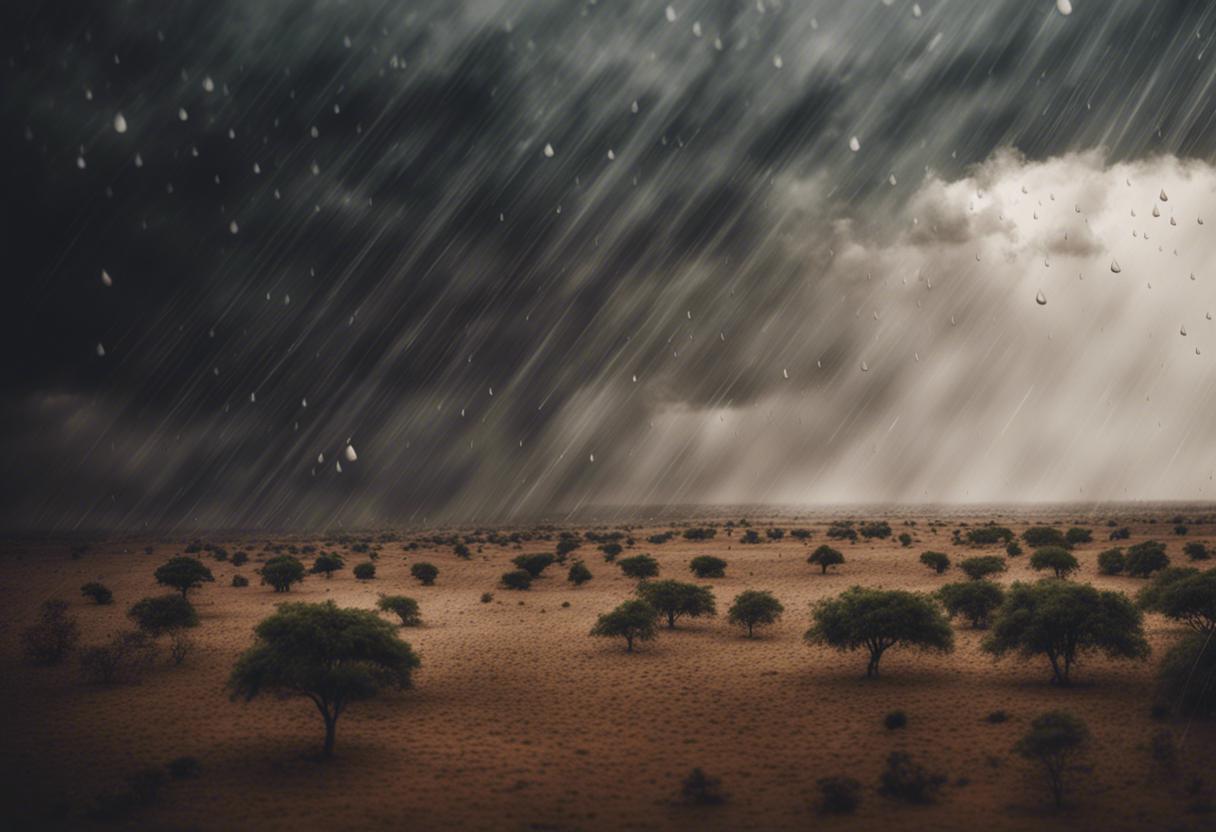Severe rainfall in Sudan has led to the death of countless individuals, intensifying the anguish in a nation already grappling with several crises. The interior ministry reported that an estimated 68 people have lost their lives due to the heavy showers that have affected various regions of the country this year.
These downpours are the most severe since 2019, heavily impacting the western, northern and eastern regions, resulting in flooded communities, destruction of homes, farms, and other necessary infrastructure. Flooding has resulted in over 27,000 persons being displaced since June, as cited by the United Nations.
In Rokero, a town based in West Darfur’s Jebel Marra region, a minimum of twelve casualties were reported. A local leader, Abdallah Hussein Adam, stated that the flooding was unique for Jebel Marra, where water usually pass by, despite heavy rains. He disclosed to The Guardian that while nine bodies had been recovered, three individuals remained unaccounted for.
As Jebel Marra is primarily an agricultural region, Adam expressed his concern over the potential impact on crop yield due to the floods. He opined that the situation could lead to famine, with prices skyrocketing as crop production had taken a hit, not only due to the floods but also because of the ongoing conflicts.
Jebel Marra, home to close to 50,000 families, has seen an influx of displaced individuals owing to conflicts that sparked off last year between the national army and the Rapid Support Forces militia. The civil war has resulted in an estimated 16,000 deaths, causing a significant displacement crisis within and outside the country.
A variety of international human rights groups have pointed out mass sexual violence and other heinous acts carried out by the conflicting parties. Furthermore, the conflict has put half of the country’s population at risk of food shortage and on the brink of famine. The challenging situation has been worsened by the heavy rains, adding to the difficulties in providing aid due to the ongoing conflict.
Earlier in the month, a famishment crisis was announced by global hunger observers at a refuge site situated in the outskirts of El Fasher, Darfur’s central city. Othman Belbeisi, the director for North Africa and Middle East regions under the International Organisation for Migration, highlighted the severe intensity of Sudan’s humanitarian disaster. It reached a tragic and disastrous climax due to an array of troubles, including famine and flooding.
Belbeisi stressed the urgency of a colossal, rapid and synchronised universal action to prevent an upcoming tragedy. “If we don’t act right away, we might be standing by as countless lives are lost to preventable causes in the imminent future,” he cautioned.
In an effort to bring Sudan’s near-year-and-a-half-long turmoil to a close, the United States is spearheading mediation efforts. However, no affirmations about participating in the peace talks planned for Wednesday in Switzerland have come from any of the conflicting sides. This report was brought to you by the Guardian.

